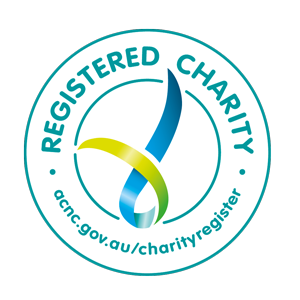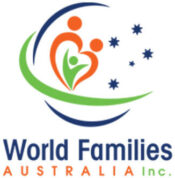Meskele Kristos is a desperately poor village where the families struggle to provide for the needs of their family members. Children often go hungry, suffer from malnutrition and illness. Many don’t even own a pair of shoes or enough clothes to complete one outfit for them to wear.
Child Sponsorship
The first of the two World Families Australia projects in Meskele Kristos is a child sponsorship project, where families are helped and supported to develop the community through improving the facilities at the local school.
Many children are now sponsored through this project, which is wonderful. One of these children is 6 year old Bimerewu, who is finally able to walk upright. Having spent his life crawling on his hands due to having a short femur, he now has the opportunity to walk thanks to a prosthetic leg. A sponsor kindly offered to pay extra to meet his medical needs. Being such a rural community with no health care services, Bimerewu needed to travel to Lalibela, then Bahir Dar where he stayed for a number of days and underwent medical tests and procedures. Here it was determined that he was best to have a prosthetic leg fitted. Thankfully this was available in Bahir Dar and was organized for him during his stay there.
Habtam is 16 yr old teenager who also has spent her life crawling on her hands. A World Families Officer was able to source a $6 pair of crutches to help her to walk upright. Most recent reports on Habtam are that she is having trouble straightening her back, and that she is only able to use the crutches for short periods of time. Without mobility she is expected by the community to have a very limited future. We are seeking donations to assist Habtam to travel to a town or city in the future where she may be able to access a medical review to see if anything else can be done to help her.
Project Sponsorship - Meskele Kristos School
Our second project in Meskele Kristos is the Meskele Kristos School. This school has a very basic structure and very limited facilities and resources, which are stretched to try and meet the educational needs of over 600 students from the local community.
The classrooms are constructed of mud & stone walls, dirt floors and an iron roof. There were 3 class rooms, some had tables and chairs while others contained mud benches for the children to sit on. Before this project started with Meskele Kristos School, there were no toilets at the school. The community became involved and dug a large holes for a pit latrine toilet. Through donations to this project, pit latrine toilets have since been completed.
Recently Engineers without Borders developed a scheme whereby the children at the school would have access to water.
They have carried out extensive studies for the correct soil type required to make earth blocks and build water tanks, (which they have carried out at their own expense),this would then allow them to make the water tanks from the earth blocks.
Once results are known, and if successful, the community will be enabled to build more water tanks or other buildings. The Engineers are planning to teach the people in the village in how to make the earth blocks and how to build the water tanks, a model for them to learn from and reproduce. The cost of this project is estimated at $10,685. A large portion of this cost is to purchase a brick machine outright, transport it to the village and leave it there. Another part of this amount is to be used to repair the water system from another village, which would flow to Meskele Kristos and provide more available water. This is also necessary, as each year the Meskele Kristos water sources dry up.
Over the last couple of years, World Families Australia in conjunction with Engineers without Borders (EWB), Save Your Holy Land Association, local contractors and community members have been working to establish a stabilised water catchment and provision system for the Meskele Kristos community in northern Ethiopia. The planning and implementation has been challenging, but as a team, the water catchment units have now been built! The facility includes a water harvesting system, complete with gutters and a first flush system.The contractor built the main tank and helped with two small tanks- one for the first flush, and one for the treated water before usage. Community voluntary labour was also utilised. The “Engineering Club Students” have responsibilities for the monitoring of the system- they are very excited about this opportunity!
The EWB teams also completed further house surveys to continue to get to know the community and also presented educational activities in the school.
EWB has also starting to think about next possible projects in the village- based on the information gathered during house surveys, meetings with stakeholders and community workshops.








